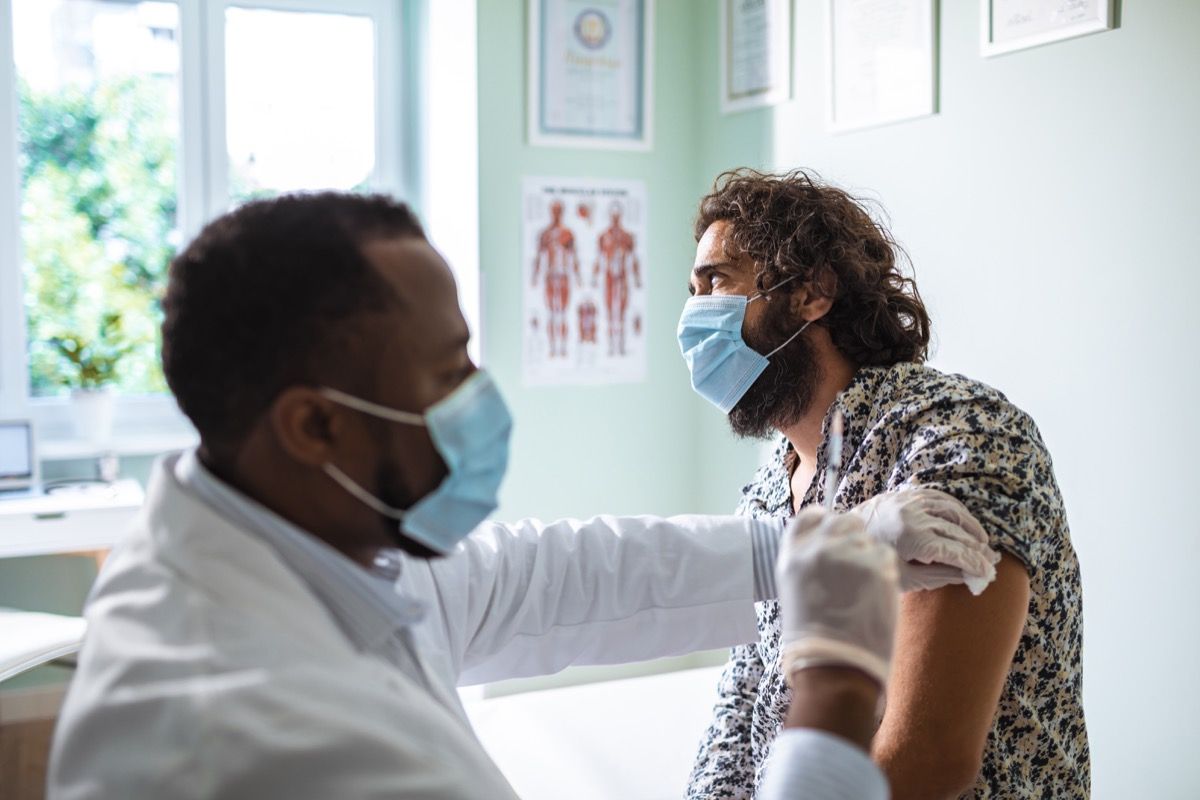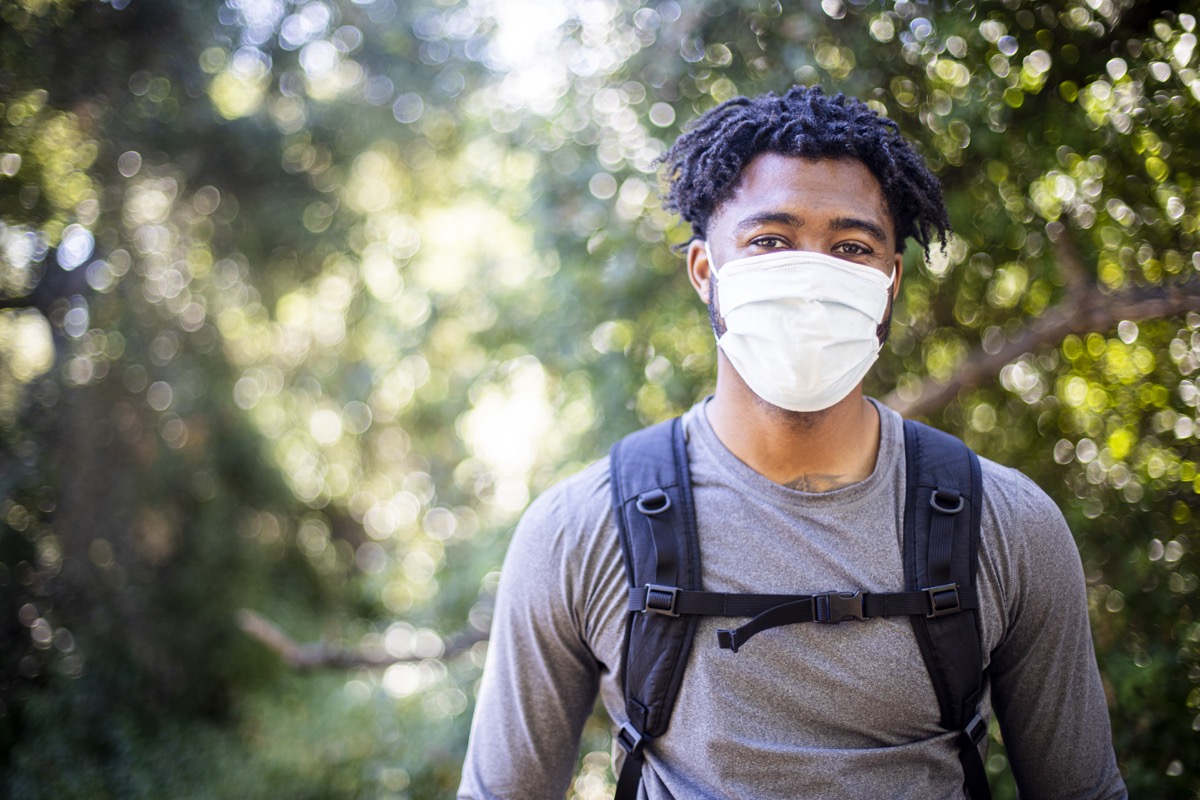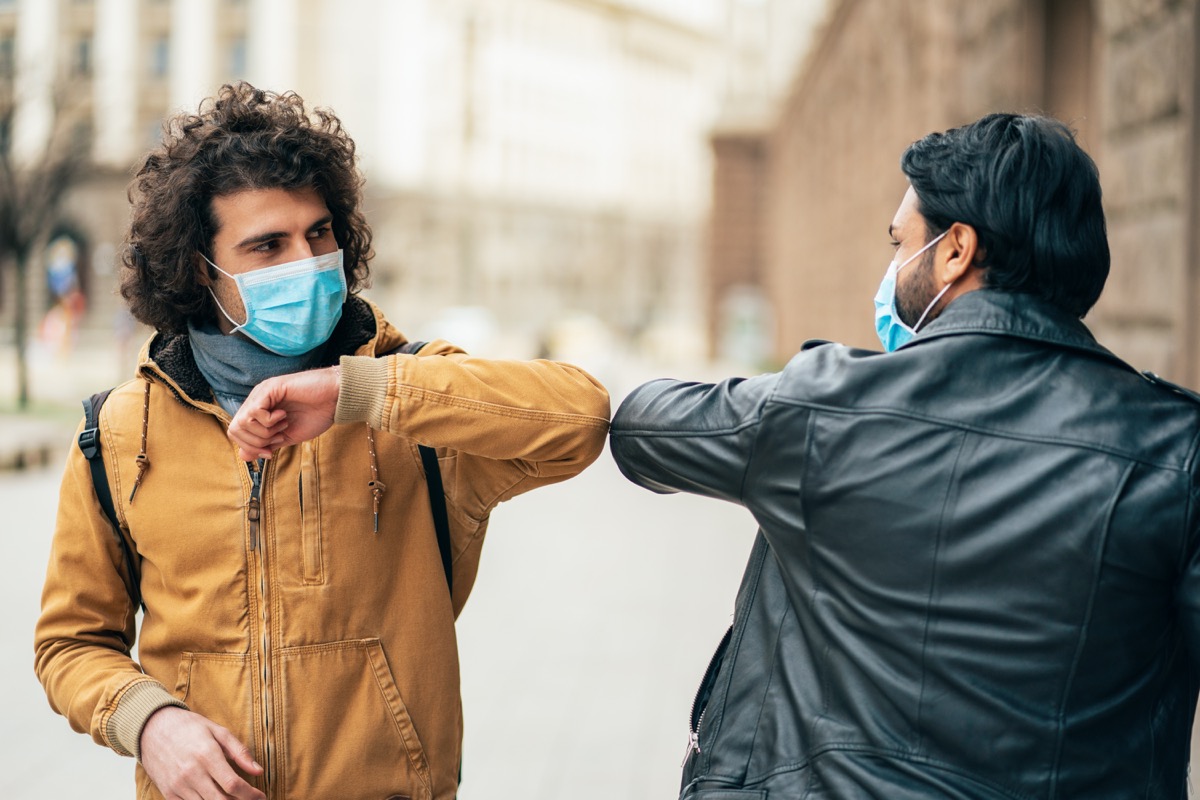The study, published in the Lancet Infectious Disease journal on Oct. 12, found that a 25-year-old man in Nevada had contracted the coronavirus on two separate occasions. This is the first confirmed case of a person in the U.S. getting reinfected, making the country the fifth in the world to report a confirmed case of reinfection. To find out why this American man’s second COVID case is scaring scientists, read on. And for more on contracting the virus more than once, If You’re Asymptomatic, You May Be More Likely to Get the Coronavirus Again. The 25-year-old man tested positive for COVID the first time on April 18 and then a second time on June 5—even after having two separate negative tests in May. According to the researchers, it was clear that this was a case of two different coronavirus infections, and not the original infection becoming active again. This is because they found that the genetic codes of each infection showed “significant differences,” meaning the man was infected by two different, genetically distinct strains of the coronavirus. And for more on COVID mutations, Dr. Fauci Says This Is Why the Latest COVID Mutation Worries Him. According to the researchers, the man’s second case of the coronavirus was “symptomatically more severe” than the first case. During his first case, he had symptoms that included sore throat, cough, headache, nausea, and diarrhea. However, during his second case, he presented most of those symptoms again, but also dizziness, after seeking help at an urgent care center. Then five days later, a primary care doctor found that the man had shortness of breath and wasn’t getting enough oxygen. This meant that the “patient required ongoing oxygen support in hospital,” researchers noted. And for more on COVID symptoms, This One “Wacky” Symptom Means You Have COVID, Not the Flu.ae0fcc31ae342fd3a1346ebb1f342fcb What made the researchers most nervous was that there was no indication that this man was prone to getting the coronavirus, especially more than once. According to the study, this patient had no history of any underlying conditions that would make him more vulnerable to the virus, nor were there any indications of compromised immunity. “The individual associated with these two SARS-CoV-2 infections had no immunological disorders that would imply facilitation of reinfection,” the researchers noted. “They were (also) not taking any immunosuppressive drugs.” And for more on underlying conditions in relation to the coronavirus, this is The Deadliest Pre-Existing Condition You Could Have With COVID. Many believed that antibodies from an original coronavirus infection would grant them immunity from the virus in the future—meaning if you had a mild or asymptomatic case of the coronavirus, you would be safe from ever having to worry about a more severe case of COVID. However, the researchers from the recent study say that this instance of COVID reinfection shows that immunity is not promised. “Thus, previous exposure to SARS-CoV-2 might not guarantee total immunity in all cases,” the study noted. “All individuals, whether previously diagnosed with COVID-19 or not, should take identical precautions to avoid infection with SARS-CoV-2.” Simon Clarke, an associate professor in cellular microbiology at the University of Reading who was not involved in the study, told CNBC that more research needs to be done on protective immunity before ruling it out, however. He said that this case could “be just one of a very small handful of reinfections.” But he did admit that this could “potentially” make generating immunity against the virus “much more difficult.” And for more up-to-date information, sign up for our daily newsletter.



